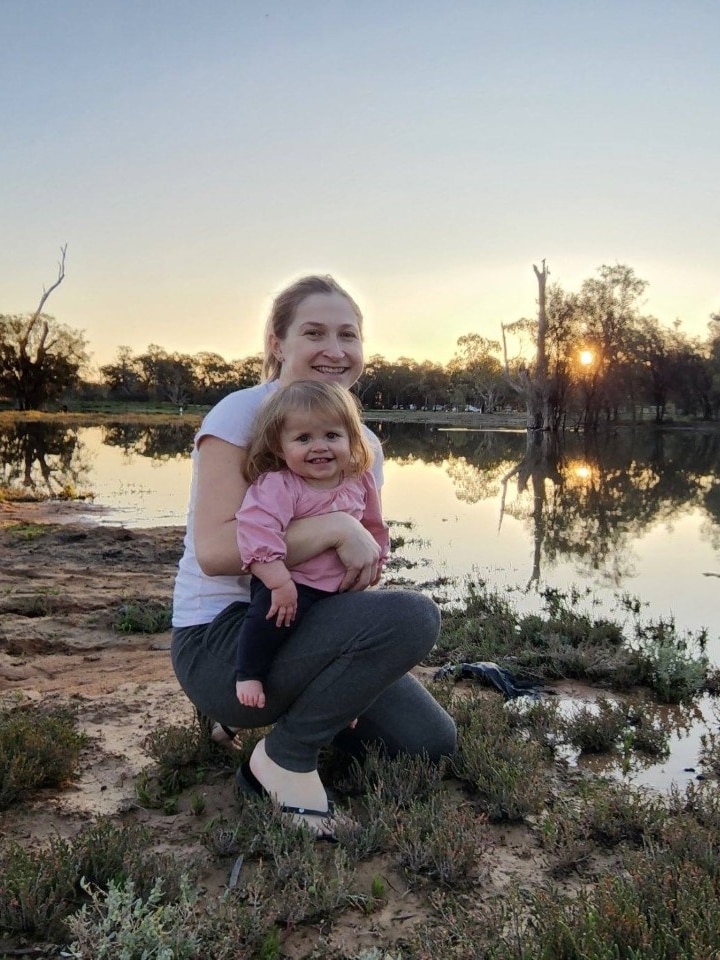Peyton Obst was just two weeks old when she was declared septic with meningitis.
It came after days of her parents seeking medical assistance for her worsening symptoms, which included becoming drowsy and floppy, refusing feeds, profuse vomiting and bleeding from the bowels.
The newborn had contracted Group B Streptococcus (GBS), a common bacterium that can be passed on from a mother to baby during pregnancy or labour and lead to infection and lifelong complications.
Her mother, Sarah Copeland, tested positive for GBS after taking a routine swab when she was 35 weeks pregnant, but was deemed low risk for transmitting it to her daughter because she had a planned caesarean section due to other complications.
“Peyton was never exposed to GBS during birth, and I received routine antibiotics during the caesarean, so it’s still not clear how she got it,” Ms Copeland said.
“After seven failed IV cannula attempts and two failed lumbar punctures, our daughter was moved to the paediatric intensive care unit and had surgery to place a central line in her chest.
“That allowed her to receive an intense course of life saving antibiotics over the next few weeks.”
Two years on, the long-term effects of GBS on Peyton are still unknown, but her parents believe it could be the reason she aspirates on fluids, is unable to bear much weight on her legs or grow at a regular rate.
Know the signs
The toddler used a nasogastric tube to feed for the first year of life and now has a percutaneous endoscopic gastrostomy tube inserted in her stomach, with an upcoming MRI scan to assess for any brain damage.
“She’s the most resilient, happy and friendly girl and people often don’t realise how much she’s been through,” Ms Copeland said.
“Each case is individual, but the earlier you can detect GBS, the quicker you can treat it.”
As a regionally based family from South Australia’s Riverland, Ms Copeland and her partner Samuel Obst were required to travel to and from Adelaide for Peyton’s birth and again for further medical assistance in the weeks and months that followed.
She is calling on all expectant parents, particularly those based in regional areas, to know the symptoms of GBS in newborns this GBS awareness month.
“I’d like people to know that it’s not a taboo subject, it’s just this common bacterium that comes and goes. The best thing you can do is know your status and act if something’s not right,” she said.
SA Health statistics show 12.2 per cent of pregnancies in the Murray Mallee region were GBS positive in 2019, on par with the South Australia state-wide rate of 13 per cent.
GBS symptoms in newborns include breathing difficulties, becoming drowsy or floppy and not interested in feeding, vomiting, pale or mottled skin and being too hot or cold.
Wellbeing SA says it strongly encourages expectant mothers to attend routine antenatal appointments during their pregnancies, so medical conditions such as GBS can be detected and treated before birth, if possible.
Posted , updated




